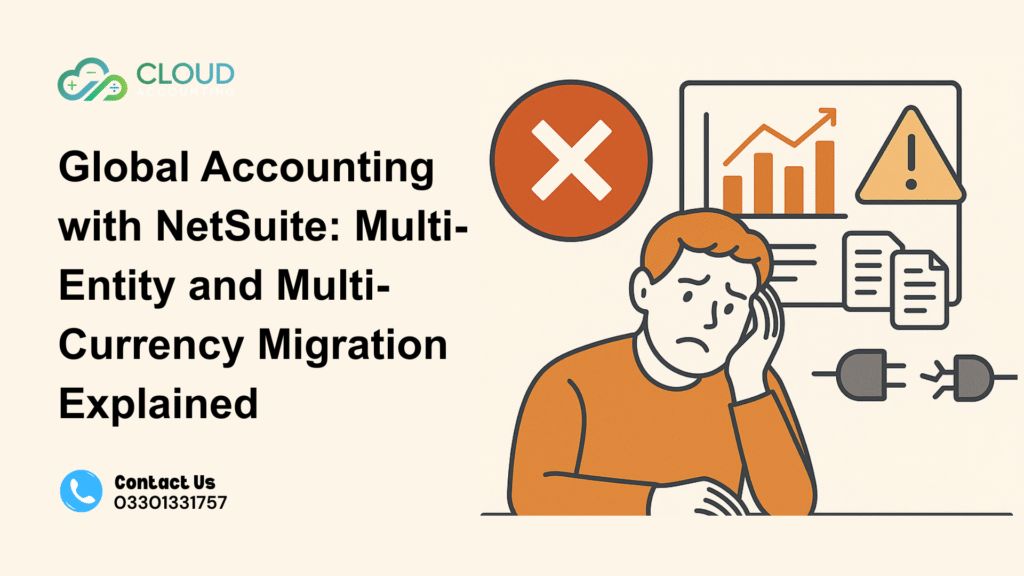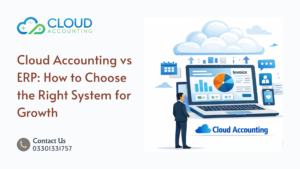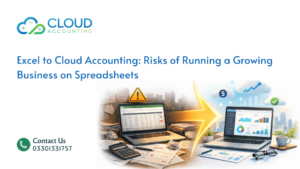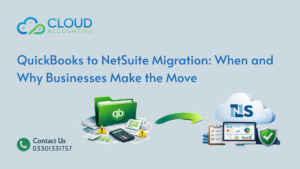Many businesses choose NetSuite to gain control over finance, operations, and compliance. But for every success story, there’s another tale of NetSuite migration failure. Failed migrations mean wasted money, missed deadlines, and frustrated teams. The good news? Understanding why failures happen is the first step to avoiding them.
The Growing Importance of NetSuite Migration in 2025
In 2025, digital transformation is no longer optional it’s a necessity. Mid-sized and enterprise businesses are increasingly replacing outdated tools like QuickBooks, Sage, or Excel with modern cloud ERP systems such as NetSuite. The reasons are clear:
- Scalability: NetSuite can support global subsidiaries, multiple currencies, and complex tax setups.
- Automation: Finance teams can cut manual tasks and reduce errors through workflows and integrations.
- Compliance: Built-in reporting helps meet local and international accounting standards.
- Real-time visibility: Executives get instant insights into financial performance.
Yet despite these advantages, the path to NetSuite is not simple. The reality is that NetSuite migration failure happens far too often, not because NetSuite isn’t capable, but because the process requires careful planning, technical precision, and organizational buy-in.
Businesses that underestimate the migration challenge risk facing:
- Incomplete or corrupted data transfers
- Broken integrations with ecommerce, payroll, or CRM tools
- Staff resistance to adopting the new platform
- Costly delays that eat into productivity and cash flow
In short, adopting NetSuite is a strategic move for growth but without a structured plan, it can quickly turn into a case of NetSuite migration failure.
Top Reasons Behind NetSuite Migration Failure
So why do some projects crash? The truth is, there are common patterns behind almost every NetSuite migration failure.
Lack of Proper Planning
Many businesses jump into migration without mapping out the full process. This leads to unrealistic timelines and poor resource allocation.
Poor Data Mapping & Validation
When financial data doesn’t align with NetSuite’s structure, errors creep in. Missing fields, duplicate records, and mismatched balances are all warning signs of NetSuite migration failure.
Overlooking Multi-Currency & Compliance Complexities
Global businesses often ignore compliance rules or multi-currency setups. The result? Reports that don’t reconcile and tax filings that don’t match reality.
Inadequate Staff Training
Even if the migration technically succeeds, teams may resist adopting the system. A lack of training is one of the hidden causes of NetSuite migration failure.
Weak System Integrations
If NetSuite doesn’t properly connect with payroll, ecommerce, or CRM platforms, workflows break. This causes delays and manual rework.
Choosing the Wrong Migration Partner
Many companies fall into the trap of picking the cheapest or least experienced consultant. Unfortunately, this often ends with NetSuite migration failure that costs more to fix than it would have to prevent.
In short, the main causes include:
- No clear migration roadmap
- Poor-quality data and lack of validation
- Ignoring global accounting rules
- Minimal user training and buy-in
- Weak third-party integrations
- The wrong implementation partner
The Real Cost of NetSuite Migration Failure
The price of getting migration wrong goes far beyond wasted IT budgets. A failed project creates real business disruption:
- Delays: Project timelines stretch by months, leaving staff in limbo.
- Cost overruns: Companies spend twice their original budget fixing issues.
- Productivity loss: Staff waste time reconciling broken data.
- Compliance risks: Regulatory filings may be late or incorrect.
- Low adoption: Teams reject the system and return to spreadsheets.
How to Avoid NetSuite Migration Failure
Thankfully, failure isn’t inevitable. By following structured best practices, companies can turn migration into a success story.
Conduct a Pre-Migration Data Audit
Review all existing financial and operational data before moving. Spot duplicates, errors, and missing records to reduce the risk of NetSuite migration failure.
Define a Clear Roadmap
Build a timeline with defined milestones. Include data cleansing, mapping, testing, and training. This roadmap is your defense against NetSuite migration failure.
Test and Validate Early
Don’t wait until go-live to find errors. Run test migrations and validate reports in advance. Continuous validation ensures accuracy.
Prioritize Staff Training & Change Management
Your team needs to feel confident using NetSuite. Training reduces resistance and prevents NetSuite migration failure caused by low adoption.
Partner With Experienced NetSuite Migration Experts
The right partner brings proven processes and reduces risks. Cloud Accounting specializes in guiding businesses through complex migrations, ensuring that NetSuite migration failure is avoided at every step.
Checklist for success:
- Audit and clean your data first
- Build a phased roadmap
- Run test migrations
- Train staff thoroughly
- Choose an expert migration partner
Cloud Accounting’s Proven Approach to Successful NetSuite Migration
At Cloud Accounting, we’ve seen too many businesses suffer from NetSuite migration failure after working with inexperienced consultants. Our approach is built on three pillars:
- Data-first: We validate every record before migration.
- Compliance-focused: Multi-currency and tax rules are built into the plan.
- People-supported: Training and support ensure teams adopt NetSuite with confidence.
One client came to us after struggling with months of failed attempts. Within weeks, our structured process delivered a clean, working NetSuite system they could trust.
Final Thoughts
NetSuite migration failure doesn’t have to be your story. Many businesses assume migration challenges are unavoidable, but the truth is, most failures come down to preventable mistakes. With the right preparation, you can turn migration into a growth opportunity rather than a setback.
When done correctly, a NetSuite migration can deliver:
- Accurate, real-time reporting across all business units
- Full compliance with global tax and accounting regulations
- Seamless integration with ecommerce, payroll, and CRM systems
- Stronger decision-making through consolidated data
- Higher productivity by eliminating manual rework and disconnected spreadsheets
The key difference between success and NetSuite migration failure is having the right strategy and the right partner. Cloud Accounting provides a proven framework that protects your data, ensures compliance, and equips your team to fully embrace NetSuite.
If your business is planning a NetSuite switch, don’t risk costly setbacks, lost productivity, or compliance errors. Instead, choose a partner that understands the challenges and knows how to overcome them.
Book a consultation with Cloud Accounting today and get your migration right the first time. Our team of specialists will help you avoid NetSuite migration failure and unlock the true value of NetSuite for your growing business.








